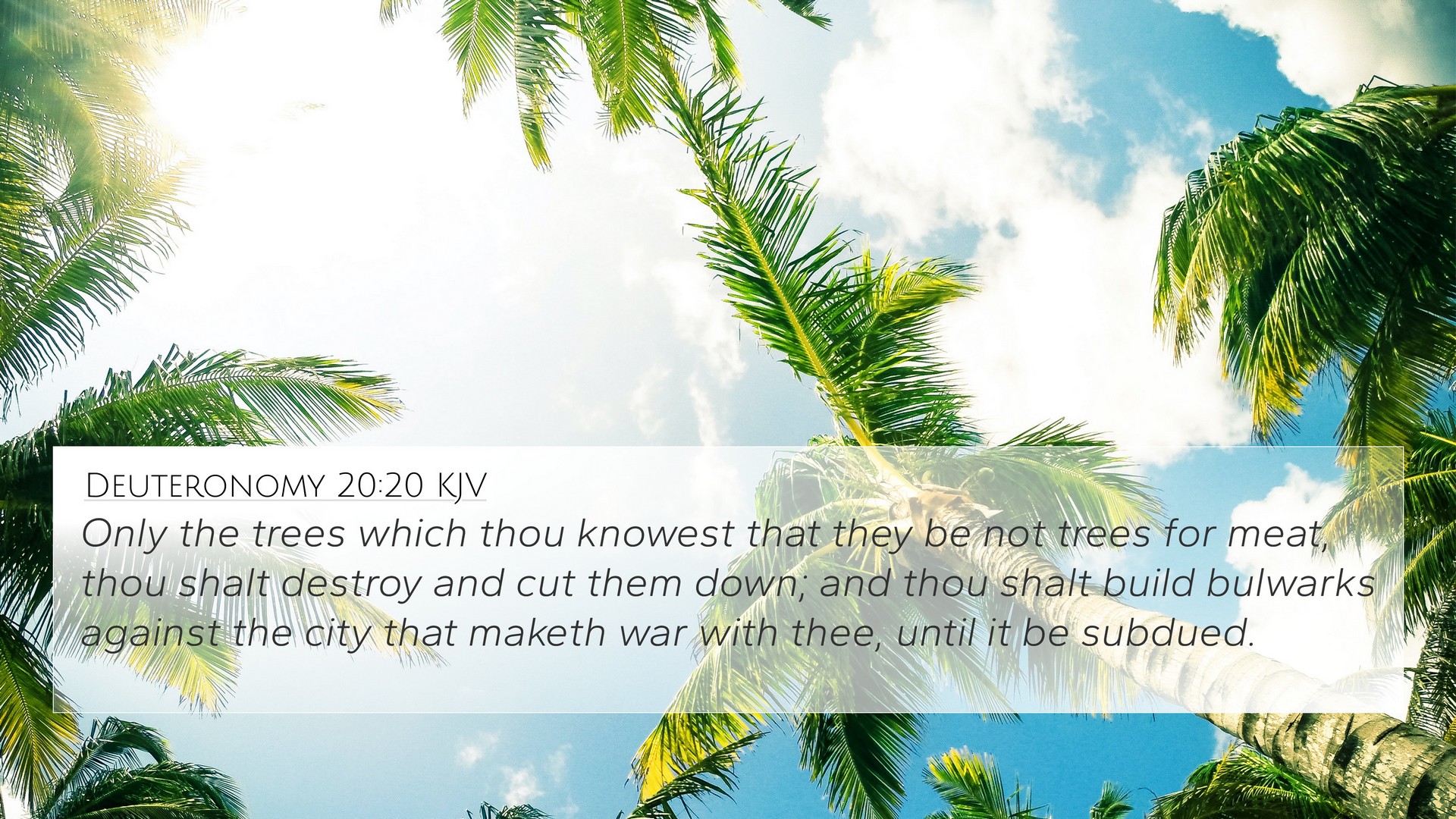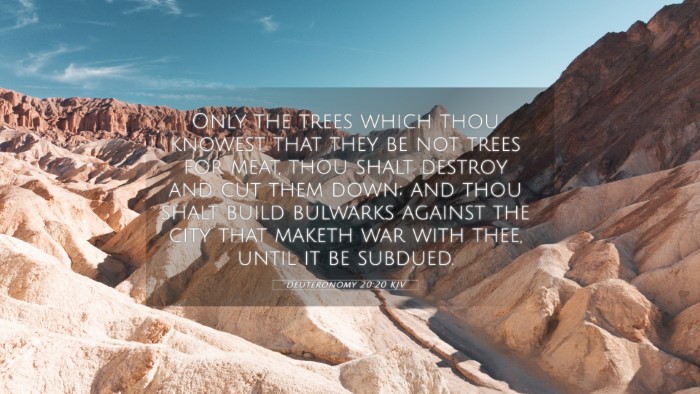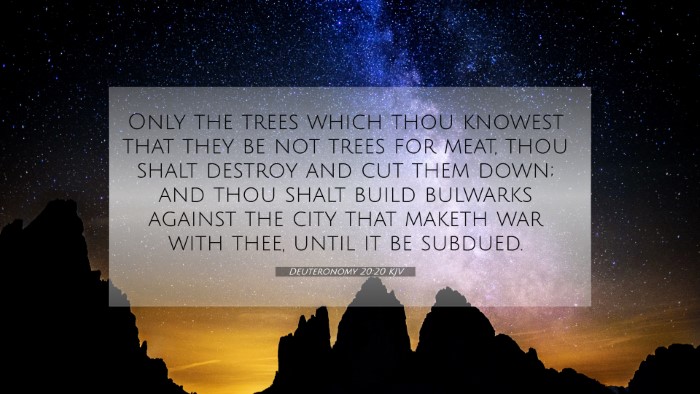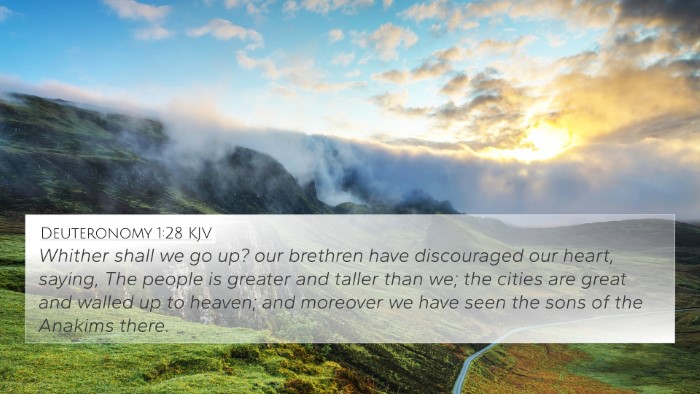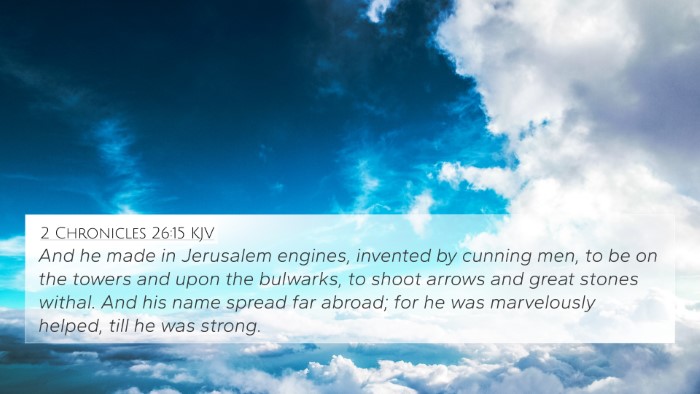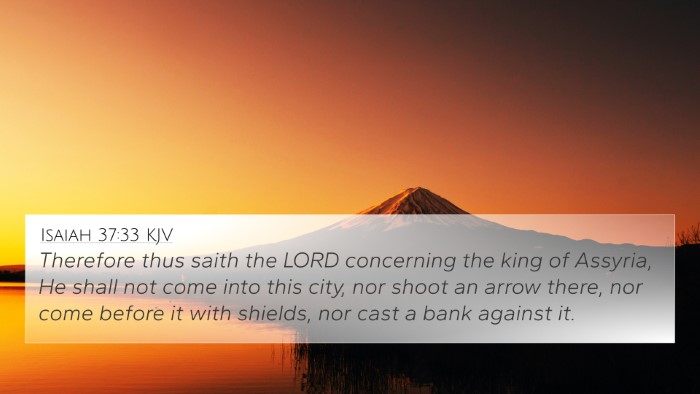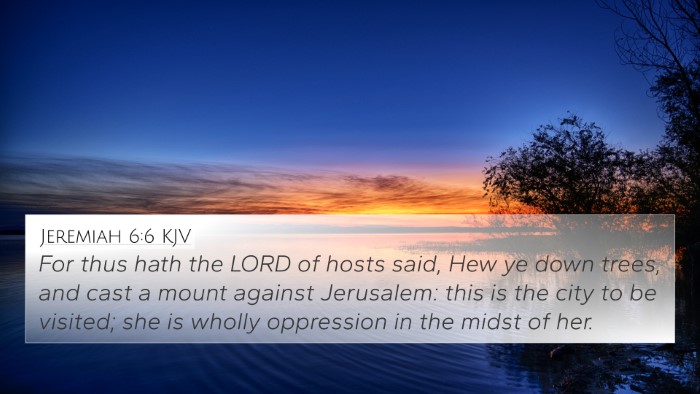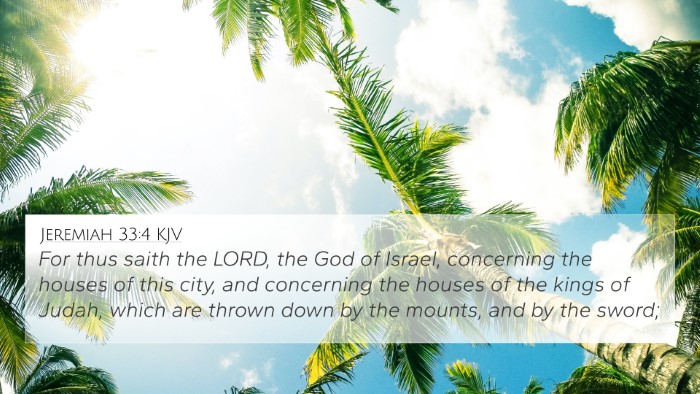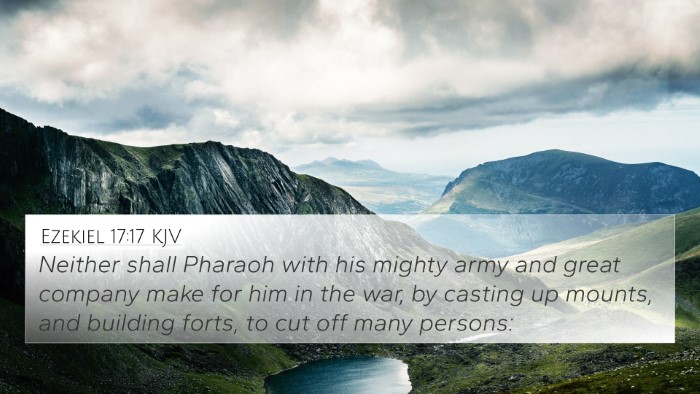Understanding Deuteronomy 20:20
Deuteronomy 20:20 states: "But the trees which you may know are not trees for food, you may destroy and cut down to build siege works against the city that is making war with you until it falls." This verse provides specific instructions regarding warfare and the treatment of resources during times of conflict.
Summary of the Verse Meaning
This verse highlights the importance of discernment regarding what can be destroyed or preserved during a siege:
- Destruction of Non-Food Trees: The scripture specifies that trees which do not produce food can be cut down for military advantage.
- Military Strategy: It underscores how vital resources must be managed and utilized in warfare, framing the tactical approach Israel was to take against their foes.
- Preservation of Food Supply: By prohibiting the destruction of fruit-bearing trees, this law promotes the idea of sustainability and the preservation of food resources for the future.
Commentary Insights
Matthew Henry's Commentary
Matthew Henry emphasizes that this command was intended to prevent unnecessary destruction of resources essential for survival. He notes:
- The importance of careful consideration in warfare.
- God’s concern for the well-being of His people, even amid conflict.
Albert Barnes' Notes
Albert Barnes discusses how this verse delineates the distinction between useful trees and those which are not. He elaborates that:
- It outlines the ethical considerations related to warfare.
- It implies that warfare should not disregard the future well-being of the nation.
Adam Clarke's Commentary
Adam Clarke remarks on the practical implications of cutting down trees during a siege. He mentions:
- Such measures are common in ancient warfare.
- It also serves as a reminder of God's provisions and care for Israel, ensuring their continued sustenance.
Bible Verse Cross-References
Several other Bible verses relate to the themes of Deuteronomy 20:20:
- Leviticus 25:3-4: Discusses the importance of land and trees and their benefit for sustenance.
- Deuteronomy 20:19: Further details regulations regarding warfare and care of the land.
- Job 24:6: Illustrates themes of land use and resources under communal responsibility.
- Isaiah 37:30: References scenarios of siege and resultant reliance on agriculture.
- Luke 3:9: In the New Testament, emphasizes the preparedness for God’s judgment using agricultural metaphors.
- Exodus 23:10-11: Discusses observing the land during the seventh year which also reflects care for the environment.
- Matthew 12:11-12: Speaks of the value of life, again tying into the theme of preservation over destruction.
Thematic Bible Verse Connections
The themes of warfare, stewardship, and divine providence resonate throughout scripture:
- Stewardship of Resources: The biblical principle of taking care of what God has provided links back to God's creative and sustaining acts.
- Divine Guidance in Conflict: Throughout the Old Testament, God provides direction to His people during battles, showing a blend of spirituality and practical military strategy.
Conclusion
The teachings of Deuteronomy 20:20 encourage a thoughtful, sustainable approach to warfare that emphasizes the importance of resources and divine guidance. This insight not only aids in understanding military ethics within biblical texts but invites readers to consider the broader implications of warfare as seen in both the Old and New Testaments.
SEO Content on Cross-Referencing Biblical Texts
For those seeking to understand connections between Bible verses, linking Bible scriptures, and various Bible verses that relate to each other, the use of a Bible concordance can be instrumental. Tools for Bible cross-referencing allow for an in-depth examination of themes and insights derived from different books of the Bible. By engaging in cross-reference Bible study methods, one can identify meaningful links and parallels, comprehensively exploring the thematic Bible verse connections across both the Old and New Testaments.
